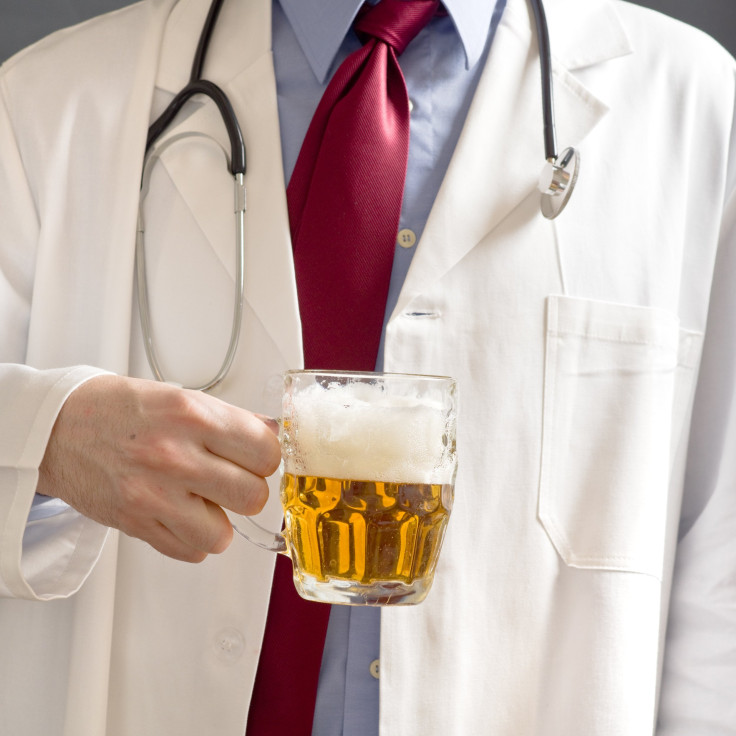Alcoholics Take Part In Anti-Drinking Drug Research With Fake Bar, Taunting Smells, And Colorful Water

Alcoholism is a permeating problem laced through every corner of society without a dependable solution. So, scientists at the National Institutes of Health set up a bar inside its hospital to help, but it isn’t for them — it’s to test a new drug on participants. The specialty bar is dimly lit and stocked with bottles full of water dyed to look like alcohol, which is designed to create an accurate atmosphere for the alcoholics.
"The goal is to create almost a real-world environment, but to control it very strictly," the study’s lead researcher Dr. Lorenzo Leggio, told the Associated Press. In the fall, Leggio’s team studied the ghrelin levels of 45 heavy-drinking participants and discovered their urge to drink rose with the appetite hormone ghrelin. Now, Leggio and his research team are in the middle of testing to see if a Pfizer drug can block ghrelin and counter an alcoholic's urge to drink.
Researchers are measuring cravings in participants while they’re hooked up to blood pressure monitors in the bar lab. They’re forced to smell their favorite drink, and ghrelin levels are tested. There are roughly a dozen bar labs similar to the one set up in the NIH all over the world, and they're all actively testing ghrelin.
NIH’s new approach is unique in that the Pfizer drug was originally developed for diabetes, but has now shown promise in ghrelin testing. So far, they’ve discovered there’s an overlap in the brain’s reward system, between the receptors that cause a person to overeat and to crave alcohol.
Each treatment must be tailored for each individual’s problem. Some alcoholics are fueled by inherited genes, which make them particularly vulnerable to alcohol’s allure. Other alcoholics are weakened to drink by environmental factors such as smells, bars, emotions, and even certain people.
"Alcoholics come in many forms," Dr. George Koob, director of NIH's National Institute of Alcohol Abuse and Alcoholism, told the Associated Press. The only way to truly change harmful drinking habits is a combination of behavioral therapy, rehab, or medications. However, Koob, who specializes in the neurobiology of alcohol, says, “you have to change your life” in order for any type of treatment to work.
Less than one-third of people who need help actually receive it. There are drugs approved by the Food and Drug Administration (FDA) to treat alcohol abuse. The drug naltrexone blocks alcohol’s feel-good sensory nerves while another anti-crave pill called acamprosate calms stress hormones. Antabuse is the oldest one on the market and is used to make a person nauseous as soon as they ingest alcohol.
"Our hope is that down the line, we might be able to do a simple blood test that tells if you will be a naltrexone person, an acamprosate person, [or] a ghrelin person," Koob said. Only 10 percent of people struggling with alcoholism are prescribed one of these FDA-approved drugs, but labs around the globe are racing to come up with the ultimate reliable medication.



























